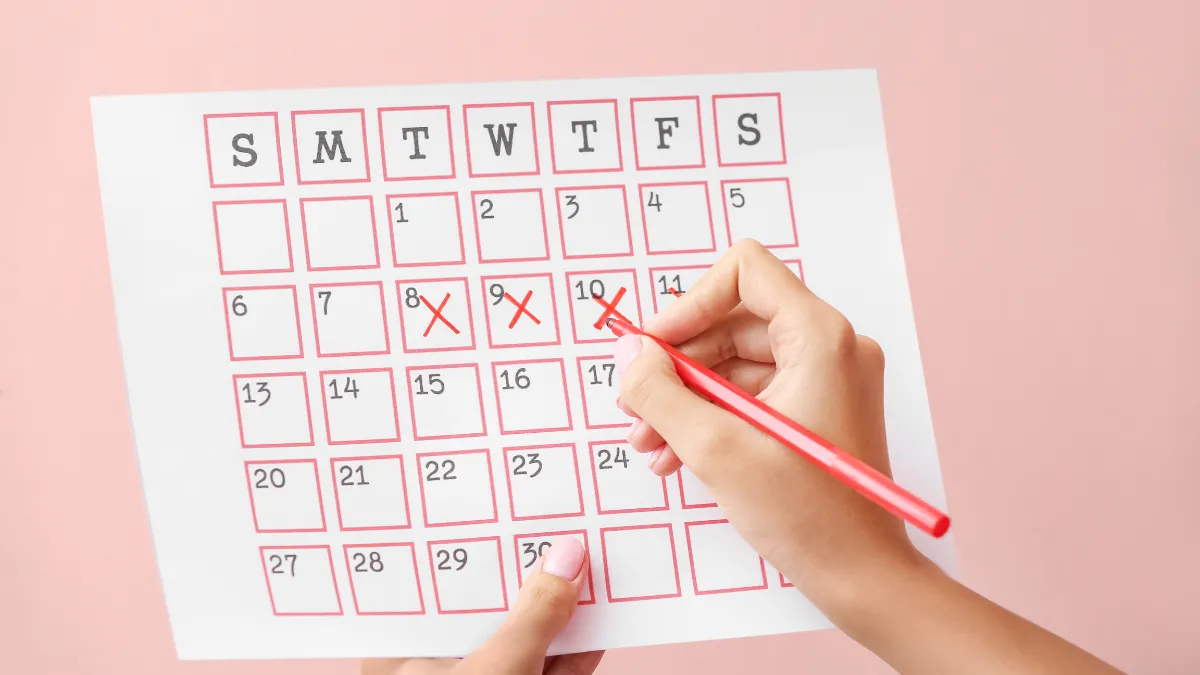
Decoding Your Menstrual Cycle: What Your Body Is Telling You
Understanding your menstrual cycle isn't just about knowing when your period starts—it's about listening to the signals your body sends throughout the month. Your cycle holds powerful insights into your fertility, hormonal health, and overall well-being. In this blog, we’ll break down what each phase means, how to recognize ovulation, and answer common questions like "can you get pregnant during your cycle?"
🌀 What Is the Menstrual Cycle?
The menstrual cycle is a monthly process your body goes through to prepare for the possibility of pregnancy. A full fertility cycle is typically 28 days but can range from 21 to 35 days and is divided into four key phases:
Menstrual Phase (Day 1–5)
This is when you have your period. Hormone levels drop, and the uterine lining is shed.
Key takeaway: Low estrogen and progesterone may lead to fatigue and mood changes.Follicular Phase (Day 1–13)
Begins on the first day of your period and ends with ovulation. Your body starts preparing an egg for release.
Key takeaway: Estrogen rises, and energy levels improve.Ovulation Phase (Day 14)
This is when a mature egg is released—the most fertile window.
Key takeaway: You may notice increased cervical mucus and heightened libido.Luteal Phase (Day 15–28)
Progesterone peaks to support a possible pregnancy. If the egg isn't fertilized, hormone levels drop, triggering your next period.
Key takeaway: PMS symptoms can occur due to fluctuating hormones.
💡 When Do You Ovulate and How Can You Tell?
A common question is: "When do you ovulate?" For most women, ovulation happens about 14 days before the start of their next period. However, this can vary depending on cycle length.
Signs of ovulation include:
A rise in basal body temperature (BBT)
Egg white cervical mucus (clear and stretchy)
Mild pelvic cramping
Breast tenderness
Increased sex drive
For accuracy, many women use ovulation tracking tools, such as ovulation predictor kits (OPKs), BBT charts, or fertility tracking apps.
🤔 Can You Get Pregnant During Your Cycle?
One of the most searched questions is: "Can you get pregnant while on your cycle?" or "Can you get pregnant during your cycle?" The answer depends on what part of the cycle you're in.
During your period: It’s unlikely but not impossible. If you have a short cycle and have sex toward the end of your period, sperm can survive long enough (up to 5 days) to fertilize an egg during early ovulation.
Just after your period: This is a higher-risk time for pregnancy, especially if ovulation occurs earlier than expected.
During ovulation: This is your most fertile time—the chances of pregnancy are highest.
After ovulation (luteal phase): Less likely, but still possible in rare cases if ovulation is miscalculated.
🔁 The Importance of Understanding Your Ovulation Cycle
Your ovulation cycle is at the heart of fertility. Knowing when you ovulate helps you:
Time intercourse for conception or natural birth control
Understand PMS and mood swings
Detect hormonal imbalances early
Take charge of your reproductive health
Whether you’re trying to conceive or simply want to understand your body better, ovulation tracking empowers you with the knowledge to make informed decisions.
📝 Final Thoughts
Your fertility cycle is your body's way of communicating with you. By decoding your menstrual cycle and learning how to track ovulation, you gain insight into your overall health, fertility potential, and hormonal balance.
So next time you ask, "when can you ovulate?" or "can you get pregnant during your cycle?"—remember, your body is already giving you the answers. You just need to know how to listen.
Ready to understand your cycle on a deeper level?
Explore our fertility tracking resources and start your journey with Fertility Wisdom today.
